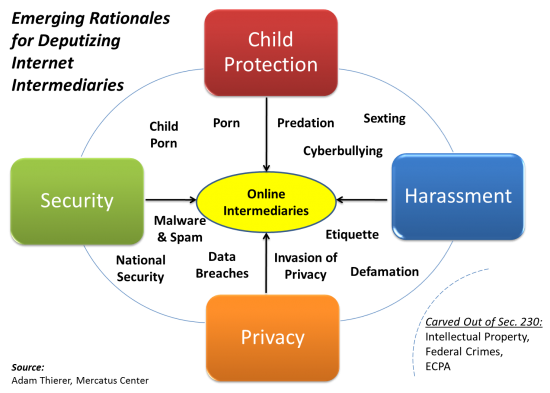Sometimes free-marketeers are branded “free market fundamentalists” or something similar by their ideological opponents. The implication is that our preference for a society in which free people interact voluntarily to organize society’s resources is an irrational desire or a religion. I’m sure there’s a similar epithet we give to nanny staters—oh, there’s one, “nanny staters”—who we believe to have excessive faith in government solutions.
Market processes have decent theoretical explanations, such as Friedrich Hayek’s essay, “The Use of Knowledge in Society.” It’s not the easiest read, but lovers of the Internet, who see the genius of its decentralization, should see similar genius in markets as a method for discovering society’s wants and uniting to achieve them—without coercion.
From time to time, we also point out examples of how market processes work to deliver even intangible goods like privacy. So, for example, I noted market pressure against Facebook’s privacy-invasive “beacon” advertising system in 2007. Berin pointed out in 2008 that market forces caused Google to remove an oppressive clause from the Chrome end user license agreement. Google competitor Cuil made a run at the search behemoth based on privacy that year, something I noted briefly then (and Ryan and I discussed in the comments). I’ve also noted the failure of many to find true market failures.
As Cuil illustrates, not every privacy play works, but companies routinely pitch the public on the privacy merits of their products and the demerits of others’. It’s not a highly visible process, but it sometimes gets a little more visible when it fails. So thank you, Facebook, for a big #FAIL in the privacy competition area this week. You provide us a nice lesson in one of the ways markets work to meet consumer privacy demands.
You see, Facebook hired PR firm Burson-Marsteller to do a whisper campaign on the privacy demerits of a Google product called Social Circle. By pushing the story of privacy problems with a Google effort in the social networking space, Facebook hoped to thwart a competitor that it fears. Success would also be a success for privacy protection. If Google were doing something wrong, and Facebook were to make the case to the public, Google would lose face and it would lose business. Most importantly, a privacy-invasive product—as determined by public consensus—would recede. Markets often work by silently shunning products that don’t cut it. (Again, hard to see if you’re not looking for it, or if you’re committed to disbelieving it.)
Facebook appears not to have succeeded. Prickly privacy advocate Chris Soghoian outed the Burson-Marsteller campaign. Dan Lyons of the Daily Beast cornered Facebook into confessing its role in the attack on Google. And privacy commentator Kashmir Hill gives the privacy issues with Social Circle a “meh.”
When it happens differently, you get a change in a service like Social Circle—the way Facebook changed “beacon” and Google changed the Chrome EULA. These are anecdotes, and they reflect but one element of the market processes that shape products and services. But it’s something that “market denialists” should consider as they dig deep to explain to themselves and others how various mechanisms in our society work.


 The Technology Liberation Front is the tech policy blog dedicated to keeping politicians' hands off the 'net and everything else related to technology.
The Technology Liberation Front is the tech policy blog dedicated to keeping politicians' hands off the 'net and everything else related to technology.